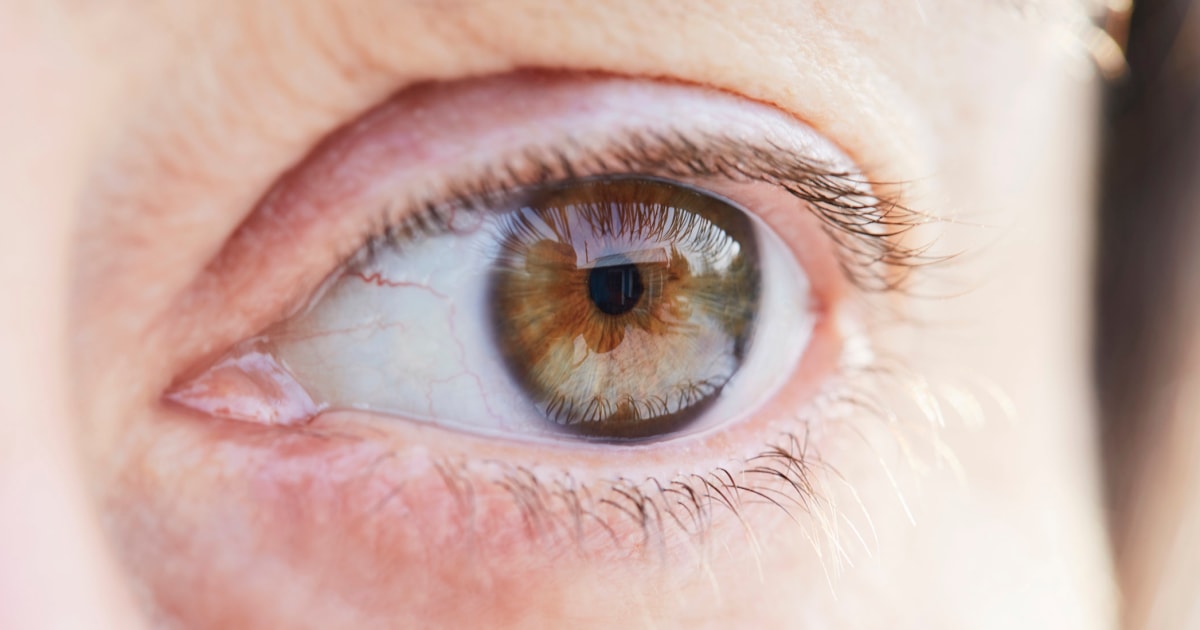
Brain training game boosts chemical linked to memory and attention, study shows
With age comes a natural decline in cognitive function, even among otherwise healthy adults without dementia. A new study finds that a cognitive training program may boost production of a brain chemical that plays a role in memory and attention.
Participants who completed game-like activities through BrainHQ, an online subscription program, showed increased production of acetylcholine, sometimes called the “pay attention” chemical. The process that produces acetylcholine in the brain is called the cholinergic system.
Researchers at McGill University in Montreal led a clinical trial of 92 people ages 65 and older. All were healthy, meaning they had not been diagnosed with a cognitive disorder.
In the study, called INHANCE (Improving Neurological Health in Aging via Neuroplasticity-based Computerized Exercise), participants were randomly split into two groups of 46. Both groups were asked to spend 30 minutes a day doing an assigned activity on a computer or mobile device for 10 weeks.
People in the intervention group did BrainHQ exercises, while those in the control group played games designed for entertainment.
Researchers used PET, or positron emission tomography, scans and a radioactive tracer to measure acetylcholine production in participants’ brains at the beginning and end of the trial.
People in the BrainHQ group had a 2.3% increase in acetylcholine production in the anterior cingulate cortex, a part of the brain important for learning, memory, attention and executive function. Those in the control group didn’t have a significant change.
The research claims to be the first of its kind to show that brain training exercises can offset natural decline in cholinergic function.
Senior author Dr. Etienne de Villers-Sidani, a neurologist at The Neuro (Montreal Neurological Institute-Hospital), which is affiliated with McGill, said his patients often ask how they can keep their brains sharp.
“I’ve always believed that there are things that you can do that have a positive impact on brain health,” said de Villers-Sidani, who is also an associate professor in McGill’s department of neurology and neurosurgery. “Now I’m even more sure with what we’re seeing, that [brain training] has a profound impact on the health of key brain chemical systems.”
BrainHQ training has been the subject of more than 300 studies. A study published last year in the journal Healthcare linked select BrainHQ exercises to faster visual processing speed in older adults.
But de Villers-Sidani wondered what biochemical changes might be involved in brain training.
“We really wanted to see how these [exercises] were changing the brain in a more fundamental way,” he said, “looking specifically at a chemical system that’s crucial for attention, memory and learning, and that also drives plasticity.”
San Francisco-based Posit Science, the company behind BrainHQ, sponsored the INHANCE trial, which was funded by the National Institute on Aging, part of the National Institutes of Health. Results of the trial were published Tuesday in the journal JMIR Serious Games.
How acetylcholine helps you learn, remember
When you’re learning something new, your brain is using acetylcholine. It tells your brain to stay alert. It’s key to other bodily functions, too, including blood pressure regulation and skeletal muscle contraction.
Acetylcholine is a neurotransmitter, which means it sends messages between neurons and other cells. It’s also a neuromodulator that can influence a neuron’s activity.
“It’s a chemical that helps us learn and think and remember. It also helps with alertness,” said Dr. Jennifer Pauldurai, a neurologist at Inova Health System in northern Virginia, who wasn’t involved in the trial. “It’s not the only thing that goes wrong in dementia, but it is one thing that has been shown to be deficient in many types of dementia, Alzheimer’s included.”
Previous research has shown that between the ages of 20 and 80, acetylcholine production decreases by about 2.5% per decade in the anterior cingulate cortex.
The INHANCE trial results are promising, Pauldurai said.
“One of the first things I always say is, ‘Keep your brain active,’” she said. “We all say it, but nobody had really been able to prove or show objective changes in the brain.”
Gaming doesn’t equal brain training
Research on the relationship between games and puzzles and the aging brain has been mixed.
The BrainHQ exercises used in the trial are game-like, yet they’re not games, said Joaquin Anguera, an associate professor at the Weill Institute for Neurosciences at the University of California, San Francisco. He’s also the clinical director of UCSF’s Neuroscape translational science center and has designed brain exercises for use in other cognitive studies.
“Games like sudoku or crossword puzzles, those are made to entertain you; they’re designed to engage you and get you excited,” said Anguera, who wasn’t involved in the trial. “Are there benefits to playing those? It depends on the study of what you’re looking for and where you’re looking to see improvements.”
BrainHQ exercises are adaptive, de Villers-Sidani said, meaning the levels get progressively harder the better you do and easier the worse you do. People doing such training should be “always pushed to their limit,” he said, noting that the trial exercises mimicked real-life stressors including time constraints and distractions.
The two BrainHQ exercises studied in the trial were Double Decision, in which people simultaneously identified objects in the center of the screen and their peripheral vision, and Freeze Frame, which involves the delayed distinguishing of a target image from other similar images.
People in the control group played Double Klondike Solitaire and Bricks Breaking Hex, in which players match hexagonal shapes of the same color.

Regularly exercising your body can help keep you physically healthy, and routinely flexing your cognitive muscles can boost brain health, Pauldurai said. But just as hitting the gym differs from receiving physical therapy, playing a game on your phone isn’t the same thing as training your brain.
“A lot of times we have too much fun clicking colorful buttons, and we get a reward because we beat one level or something,” she said. “That doesn’t actually challenge our brain to learn new things, to learn complex information and to apply knowledge.”
Could brain training help people with dementia?
The INHANCE trial had a number of notable limitations.
Nearly 96% of participants were white, and most were well-educated and lived in the Montreal area. The various visuals used in the brain exercises may resonate differently with people of different cultural backgrounds, de Villers-Sidani said.
Laura Glass Umfleet, an associate professor of neurology at the Medical College of Wisconsin in Milwaukee, had other concerns. Though McGill scientists handled data collection and analysis, several Posit Science researchers were involved in the trial, hinting at a bias toward BrainHQ in a market saturated with brain training companies.
BrainHQ offers free exercises but also promotes paid subscriptions topping out at $96 a year, which may be unaffordable for some people. The software also requires an internet-connected device and some level of tech savviness, said Umfleet, who wasn’t involved in the trial.
“Cognitive training required a daily commitment for 10 weeks,” Umfleet said in an email. “There’s no way of knowing if less intense training could be just as effective, or if more intense training has diminishing returns.”
De Villers-Sidani said an NIH-funded follow-up trial will determine how people with mild cognitive impairment react to brain training exercises.
“You should look at your brain as a physical, medical organ,” Pauldurai said. “We still need the physical engagement.” She recommends eating well, getting 30 minutes of physical activity a day and sleeping seven to eight hours a night.
“Take care of your medical health, take care of your mental health, make friends,” Pauldurai said. “And do fun, challenging things with your brain all the time.”
First Appeared on
Source link






